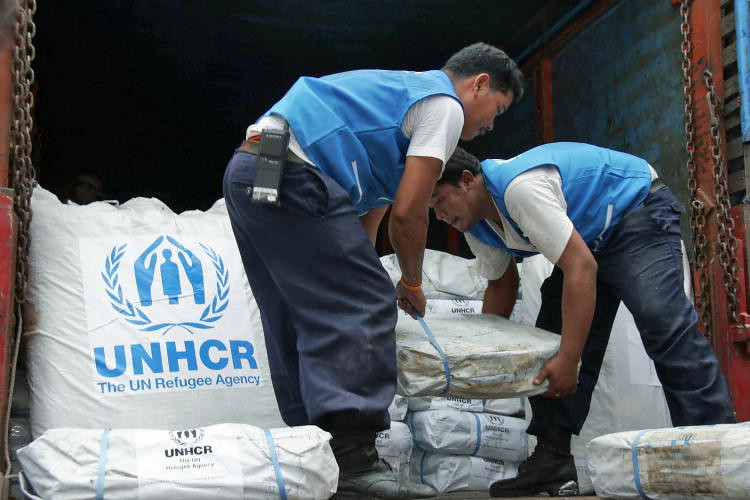The United Nations High Commissioner for Refugees (UNHCR) Malaysia has said that it remains committed to supporting the meaningful and gradual transition of refugee responsibility to Putrajaya as that is the standard procedure of their operations globally.
Yante Ismail, UNHCR Spokesperson in Kuala Lumpur told Coconuts today that the agency’s presence in Malaysia is mainly because the country lacks a national asylum system and refugee legal framework.
She said this in response to the National security council director-general Rodzi Md Saad’s remark yesterday in which he suggested that the country would be able to manage its refugees better by shutting down the UNHCR office in Malaysia, in order to avoid “interference” from external influences.
The response from UNHCR reads as:
Refugee protection is the primary responsibility of the State, and supported by the international community, civil society, private sector and refugee communities.
In the absence of a national asylum system and refugee legal framework in Malaysia, for many years UNHCR has undertaken the processes related to refugee protection, assistance and solutions; including registration, status determination, and resettlement on behalf of the Government.
However, as discussed with the Government, UNHCR remains committed to supporting the meaningful and gradual transition of responsibility to the Government. Global experience has shown that building a national system of refugee processing in line with international protection principles takes years and involves extensive consultations and capacity-building.
The positive news is that the Government of Malaysia has already begun to take these early steps. UNHCR welcomes the good progress made in positive engagements that involve multiple Government Ministries and agencies on practical issues around refugee protection.
The Government of Malaysia’s leadership role in ASEAN to address the root causes of displacement is also a positive step as is its commitment to the principles of the Global Compact on Refugees.
For a number of years now also, UNHCR has hosted delegations from relevant Ministries and agencies, most recently earlier this year, including officials at the highest level, to observe our processes and the way registration and refugee status determination is conducted.
UNHCR stands ready to continuing the constructive engagement and support to the Government of Malaysia on these and other areas of concern to Malaysia related to refugee protection and solutions.
As of end July 2022, there are some 184,980 refugees and asylum-seekers registered with UNHCR in Malaysia. Some 158,500 are from Myanmar, comprising some 105,250 Rohingyas, 23,370 Chins, and 29,880 other ethnic groups from conflict-affected areas or fleeing persecution in Myanmar.
As a non-governmental body, UNHCR serves as somewhat of a security net for the safety of refugees globally.
Refugees may seek help in various ways from the UNHCR, including education, healthcare, and community support.
UNHCR is able to do this through cooperation with governments and civil society partners in humanitarian support for refugees.
Without a dominant presence in the country, one would have to wonder about the fate of these refugees at the hand of the Malaysian government considering that its immigration department has come under fire many times for allegedly discriminating against refugees and those without legal status.
To illustrate, in April, more than 500 Rohingya refugees tried fleeing the Sungai Bakap temporary immigration depot in Penang. While most were eventually caught and returned to the depot, six of them, including two children, died while trying to cross the North-South expressway.
It was reported that the death of a detainee, who needed medical help but was ignored, had sparked fear among the refugees that led to the breakout.
Editor’s Note: The headline and a portion of this article have been changed following clarifications from a UNHCR official.
RELATED: Refugee groups condemn Malaysia’s tracking system for refugees




